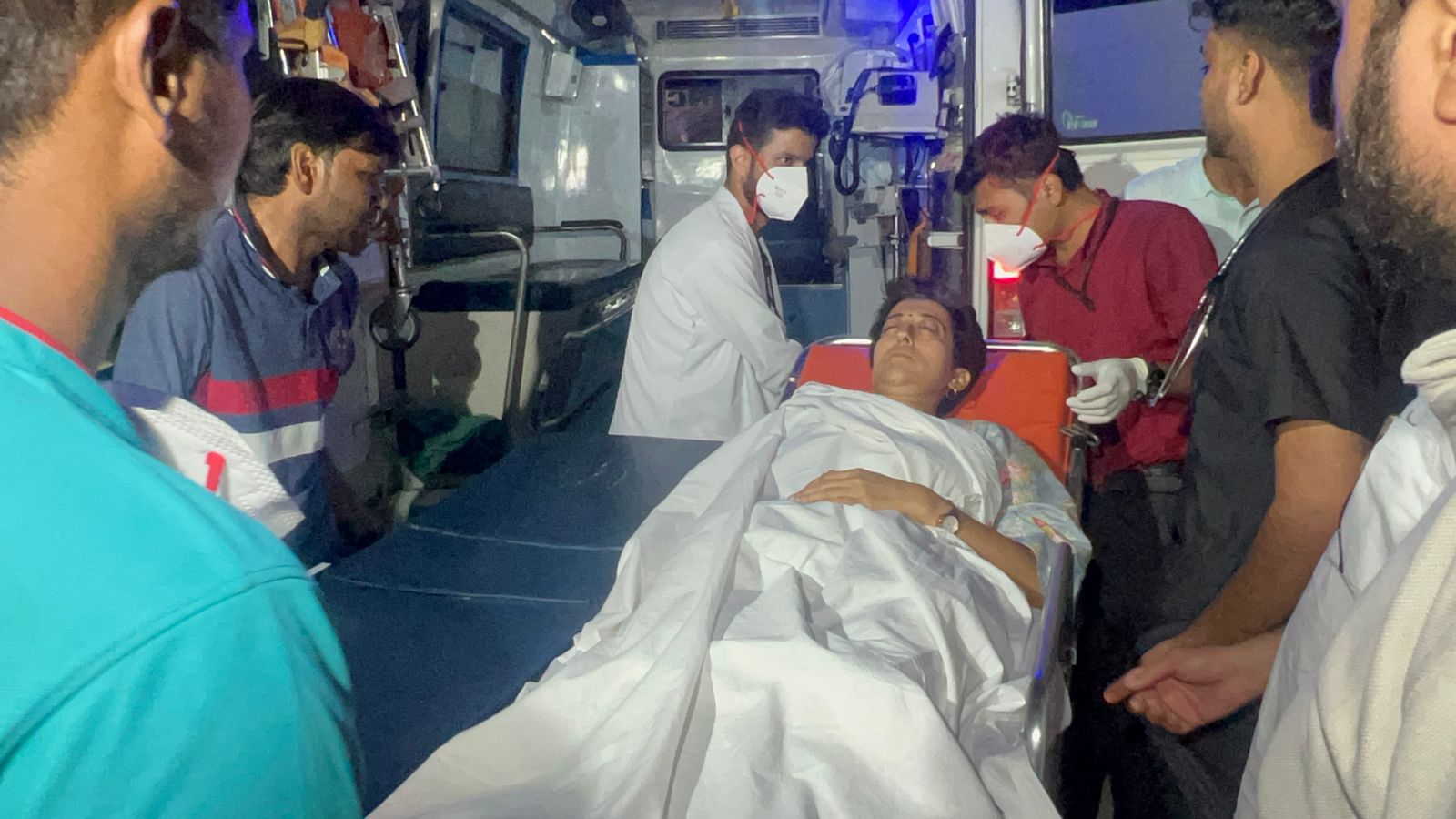“Delhi Water Minister Atishi has been hospitalized during her hunger strike over the Delhi water crisis. Admitted to Lok Nayak Hospital’s ICU, her health deteriorated after five days of fasting to demand water for the capital. Learn more about the ongoing water crisis and political reactions.”
Delhi, June 25, 2024: Delhi Water Minister Atishi was admitted to the Lok Nayak Hospital’s emergency ICU early Tuesday after her health deteriorated during an indefinite hunger strike demanding water for the national capital. Atishi had begun her fast on June 21 to highlight the severe Delhi water crisis affecting the city.
Details of the Hospitalization
The ruling Aam Aadmi Party (AAP) announced her hospitalization in a post on ‘X’ (formerly Twitter). The party detailed that Atishi’s blood sugar levels had dropped dangerously low, recording 43 at midnight and 36 at 3 AM. Following the critical drop, doctors at LNJP Hospital advised immediate hospitalization. “She has not eaten anything for the last five days and is on an indefinite hunger strike demanding the Haryana government to release Delhi’s share of water. She’s been admitted in the emergency ICU at LNJP. We pray for her speedy recovery,” the AAP stated.


Background of the Hunger Strike
Atishi’s hunger strike was initiated to draw attention to the pressing Delhi water crisis that has been plaguing the city. According to her statements, the city has received 100 million gallons per day (MGD) less water over the past three weeks, resulting in severe shortages affecting approximately 2.8 million residents. The minister and her party have been pressing for the release of Delhi’s rightful share of water from neighboring Haryana, which they allege has been withholding the necessary supply.
Political Reactions and Government Response
The Delhi water crisis has sparked significant political activity. Delhi Lieutenant Governor VK Saxena met with a delegation of AAP leaders on Sunday to discuss the crisis. Post-meeting, Saxena conveyed that Haryana Chief Minister Nayab Singh Saini assured him that Haryana would look into providing additional water to Delhi. This assurance, however, has not yet translated into tangible results, leading to continued distress in the capital.
In a broader political context, the Delhi water crisis and the hunger strike underscore the longstanding inter-state disputes over water sharing in India. Delhi, despite being the capital city, has faced perennial challenges in securing an adequate water supply due to its dependence on neighboring states.
Public Reaction and Social Media
The public reaction to Atishi’s hunger strike and subsequent hospitalization has been mixed. While many Delhi residents have expressed solidarity and support for her cause, others have criticized the approach, suggesting that more effective and less risky methods could be employed to resolve the crisis.
Social media has been abuzz with reactions. Supporters of AAP have lauded Atishi’s commitment and sacrifice, using hashtags like #SupportAtishi and #DelhiWaterCrisis to rally support. Critics, however, have accused the party of political dramatics, arguing that such stunts do little to solve the underlying issues of water mismanagement and inter-state negotiations.
Broader Implications of the Delhi Water Crisis
This ongoing Delhi water crisis has highlighted several critical issues related to urban water management in India. The dependency of cities like Delhi on external sources for their water supply exposes them to significant vulnerabilities. Climate change, rapid urbanization, and growing populations are exacerbating these issues, making sustainable water management a crucial aspect of urban planning.
Experts have pointed out that Delhi’s water woes could be alleviated by investing in better water infrastructure, promoting rainwater harvesting, and improving the efficiency of water use within the city. Long-term solutions would also require collaborative efforts between states and more robust legal frameworks governing water sharing.
Call for Sustainable Solutions
The Delhi water crisis calls for a multi-pronged approach to ensure water security for the city. Immediate measures need to be taken to alleviate the current crisis, including potential legal recourse to enforce water-sharing agreements. At the same time, long-term strategies must be implemented to reduce the city’s dependence on external water sources.
Public awareness and participation are also crucial. Water conservation practices at the individual and community levels can significantly impact overall water availability. Educational campaigns and incentives for water-saving technologies can help instill a culture of conservation.
The hospitalization of Minister Atishi has brought renewed urgency to the Delhi water crisis. It serves as a stark reminder of the critical importance of water security and the need for effective, sustainable management of this vital resource. As Delhi grapples with this ongoing issue, the eyes of the nation remain fixed on how its leaders will navigate this crisis and ensure a stable water supply for its millions of residents.
For further insights and comprehensive content, please visit our homepage



